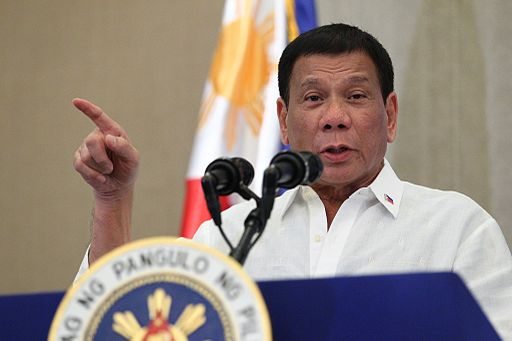
April 30, 2017, New York Times
Little about the Trump Presidency remains a secret for long. Every day brings a fresh outrage. Trump began his second 100 days in office by surprising his senior staff and probably even Philippine President Rodrigo Duterte by inviting Duterte to the White House. This was not their first exchange. Duterte called Trump to congratulate him on his election, and Duterte later claimed that Trump wished him success with his anti-drug campaign. The International Criminal Court in The Hague is presently considering whether to charge President Rodrigo Duterte with mass murder and crimes against humanity.
NPQ has followed Duterte’s brutal anti-drug campaign, the thousands of extrajudicial killings, and Duterte’s boasts about murdering three men himself. There are many reasons to be disgusted with Trump’s invitation, but no reason to be surprised by it, given Trump’s empathy toward authoritarian leaders like Russia’s Vladimir Putin and North Korea’s “smart cookie” Kim Jong-un.
Duterte has not yet officially accepted, citing a busy schedule. If he were not a head of state, Duterte would likely not even be granted a visa for a visit.
“By essentially endorsing Duterte’s murderous war on drugs, Trump is now morally complicit in future killings,” said John Sifton, the Asia advocacy director of Human Rights Watch. “Although the traits of his personality likely make it impossible, Trump should be ashamed of himself.”
Senator Christopher S. Murphy, Democrat of Connecticut and a member of the Senate Foreign Relations Committee, said on Twitter, “We are watching in real time as the American human rights bully pulpit disintegrates into ash.”
Sign up for our free newsletters
Subscribe to NPQ's newsletters to have our top stories delivered directly to your inbox.
By signing up, you agree to our privacy policy and terms of use, and to receive messages from NPQ and our partners.
The New York Times reports that several senior administration officials, thankfully, expect the State Department and the National Security Council to resist the meeting from ever taking place.
The call was supposed to be a routine one like those made recently to other Southeast Asian leaders amid concern over an increasingly aggressive North Korea. Today, the White House is justifying the invitation to Duterte as being a strategic response to that threat. However, Manila’s strategic value is doubtful. The country is some 1,800 miles from Pyongyang and a country Pyongyang does not threaten with nuclear annihilation. In any event, the Philippine Navy can hardly defend its own coast.
The New York Times reports on another possible influence for the geniality.
Mr. Trump has a commercial connection to the Philippines: His name is stamped on a $150 million, 57-floor tower in Manila, a licensing deal that netted his company millions of dollars. Mr. Duterte appointed the chairman of the company developing the tower, Jose E. B. Antonio, as an envoy to Washington for trade, investment and economic affairs.
The demoralizing conduct of the Trump administration is reviewed almost daily by NPQ because its unprincipled actions threaten almost every facet of civil society addressed by the nonprofit sector. The vitality of public education, the natural world, national health, constitutionalism, civil rights, and in this instance human rights are being brazenly flouted. NPQ reports on how fragile liberal democracies can be, but also on its many strengths and those who confront mendacity with truth and integrity. There is an essential reason why nothing stays a secret for long in the Trump White House. The outrage eventually finds expression, and for this we can be grateful and hopeful.—James Schaffer












